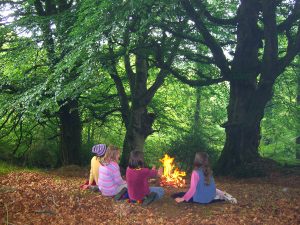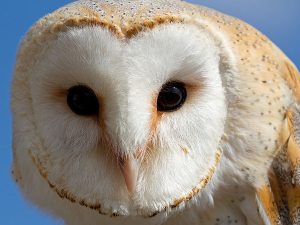My little boy Alfred, just turned 6, pays close attention to what he hears. Sometimes this means that we need to be very careful in case he remembers something and then blurts it out in front of just the wrong person. It’s already clear that he’d make an awful spy. I suppose that that’s a good thing. Sometimes it means that he asks startling questions, questions I’m not always sure how to answer.
“What’s climate change, Daddy?” he asked me the other day. Fair enough, arguably even very little children should know about climate change. Having reasonably environmentally aware children certainly helps when we need to try to explain some of our life choices to them.
Climate change is also easy enough to explain to little ones. Despite the fact that legions of politicians seem unable to get their heads around the relationship between wasteful use of resources and putting the Earth as we know it in peril, my experience suggests that kids get it pretty much straight away.
The problem is that the ramifications of Anthropogenic Climate Change are enormous. When my older kids were little, we all knew that there was a climate change problem, ‘global warming’ folks said more often back then, but solving it, even for those of us with little or no faith in the political system, seemed feasible. We were also the generation which had grown up to discover that there was a hole in the ozone layer, but that apparently the nations of the world really could get together and find a way out of a crisis when they needed to (Montreal Protocol, 1987). It’s apparent now that we have less cause for optimism than we thought we had even as recently as the early years of this century.
The so-called Climate Dragon in the Arctic seems to have been prodded into life, methane is bubbling through the warming seas and rising into the atmosphere. Meanwhile, what has been described as the worst environmental catastrophe of the 21st Century (so far) continues in Indonesia, barely reported in the mainstream mass media.
By now everyone must have noticed how rapidly the timescale of disaster is advancing. The first warnings about atmospheric CO2 gave us centuries, even a few years ago we had decades, and now, here we are, catastrophic climate change is already upon us, around the world it takes its toll daily, and the disconnect between reality and the rhetoric of politicians with their 2ºC targets and their never-ending round of corporate-sponsored conferences, grows wider with every scientific paper published.
The future of the great cities of global capitalism doesn’t rest with any dreams of a revival in the Chinese economy, but locked up in the ice of the Antarctic ice shelves. It’s too late, they’re going. It’s just a matter of time. Of course, how much time, no-one is quite sure.
The acidification of the oceans, the 6th Mass Extinction, the burning of the Arctic’s boreal forests, the drying of whole continents, all represent such a transformation of the world, such a threat to our common future, that it’s difficult to exaggerate what an impact even the idea of this would have on our culture if it was widely understood and accepted, rather than being nodded at and dismissed in the ongoing and idiotic reproduction of everyday life.
My grandparents’ generation grew up understanding a world in which the British Empire still existed, in which there was still a place they could imagine to be ‘Darkest Africa’, they had ‘old money’, and old measurements, for the most part they grew up in communities which were startlingly homogenous by modern standards, and they lived to see all of this shift and disappear; even my generation has had to cope with rapid change, but the advent of mobile phones and the privatisation of everything, is as nothing next to what is happening to the Earth system, to what we now realise to be the really important changes our species has been bringing about.
Teaching young children about ACC, it might be argued, can instill in them an environmentalist ethos; they will grow up to be responsible, to understand renewable energy, and to expect to live in a society cognisant of the need to search for humanity’s proper place on Planet Earth. All of this is undeniable, but it’s not as simple as that, surely.
Young people who live in the Arctic already have to cope with the rapid impact of climate change; for them this is not something that can be avoided, they are already having to adapt.
Whether the Anthropocene began thousands of years ago or whether it is more recent hardly matters, what we know is that future generations face a world of extreme climate events and ecological change with all of the society-breaking consequences that will spill from these developments.
So, the question remains, how do I answer my little boy’s question? How should we all answer the questions our kids have about the Earth? My boy is 6, he’s quite reasonable and I can tell him things about the world and be careful not to scare him. I do find it hard though when he asks about animals and plants; what more normal or primal human activity is there than to explain the natural world to our little ones? But here we are having to tell our children what elephants are, or ash trees, what a rainforest is like, what a whale eats, or what it’s like at the North Pole, and every single time, we stop ourselves from telling the whole truth; we can’t tell the whole truth, because the whole truth is too frightening, and too sad.








4 Comments
You should tell them the truth. Nature is a hostile place where creatures are constantly eating each other. Even vegetarians are guilty of this. Climate change is just another symptom of this very obvious fact.
Just to clarify. You think that climate change is happening because humans, like other animals, are hostile, and that we can’t change – so there’s nothing we can do about climate change?
Climate change does not kill as much life as human greed kills. Fighting climate change today seems to be saving human bad habits such fossils fuel and animal suffering or meat consumption. It’s just my opinion.
I don’t think humans are naturally greedy, but we have a system that rewards greed and encourages it. It is also a system that is primed to grow forever, and this is the root cause of climate change. I think it’s impossible to combat climate change within a system that rewards greed and is primed to grow forever.